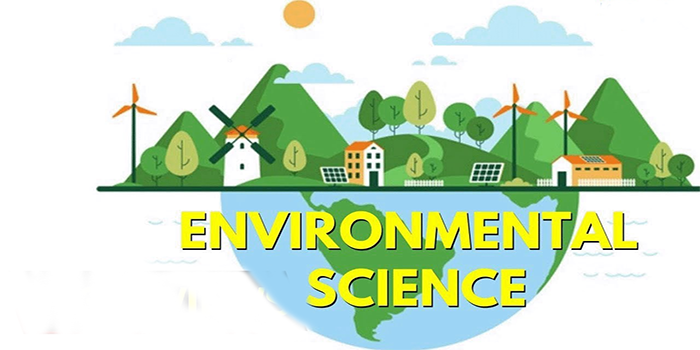
Environmental science is a holistic and interdisciplinary field that studies the physical, chemical, and biological components of the environment, as well as the interactions between them. It combines aspects of biology, chemistry, physics, geography, oceanography, atmospheric science, ecology, geology, and other disciplines to understand and study the Earth‘s environment and its effects on all living things. Environmental science is concerned with the study of human activities and their impacts on the environment, including air and water quality, climate change, biodiversity, land use, and waste management. It also focuses on the development of strategies to protect the environment and improve human health.
Environmental Science Training Course
1. Introduction to Environmental Science: This course will provide an overview of the major concepts and principles of environmental science. Topics will include the definition of environmental science, the history of environmental science, and the components of the environment.
2. Environmental Science Fundamentals: This course will provide an introduction to the principles and concepts of environmental science. Topics will include population dynamics, resource management, and environmental health.
3. Environmental Pollution: This course will provide an overview of the causes and effects of environmental pollution. Topics will include air and water pollution, hazardous waste management, and remediation.
4. Environmental Law and Regulations: This course will provide an overview of the legal and regulatory frameworks governing environmental issues. Topics will include the Clean Air Act, the Clean Water Act, and other environmental laws.
5. Environmental Management: This course will provide an overview of the concepts and principles of environmental management. Topics will include environmental planning, resource management, and environmental risk assessment.
6. Sustainable Development: This course will provide an overview of the principles and concepts of sustainable development. Topics will include energy efficiency, green building design, and sustainable agriculture.
What are the types of environmental science?
1. Ecology: This field focuses on the interactions between organisms and their environment, including both abiotic and biotic components.
2. Conservation Science: This field focuses on the sustainable management of natural resources and the protection of endangered species.
3. Environmental Economics: This field examines the economic aspects of environmental decisions, such as cost–benefit analyses, policy design, and market–based approaches to environmental protection.
4. Atmospheric Science: This field studies the chemistry of the atmosphere and the physical processes that control air quality and climate.
5. Oceanography: This field examines the physical and biological processes that occur in the ocean, including marine life, ocean currents, and the impacts of climate change.
6. Hydrology: This field looks at the movement of water through the environment, including the effects of climate change, land use, and human activities on water availability.
7. Geology: This field studies the composition and structure of the earth and its processes, including the effects of earthquakes and volcanoes on the environment.
8. Environmental Engineering: This field applies engineering principles to address environmental problems, such as air and water pollution and the efficient use of natural resources.
What is a Career in Environmental Science?
Environmental science is a multidisciplinary field of study focused on the environment and the various processes and systems that comprise it. Environmental scientists work to find solutions to environmental problems, such as climate change, air and water pollution, and loss of biodiversity. They may work in a variety of settings, including government agencies, research laboratories, and private companies. Environmental scientists specialize in a variety of areas, such as ecology, hydrology, geology, geospatial analysis, and atmospheric science. They use a variety of tools, including Geographic Information Systems (GIS) and remote sensing technology, to study the environment and develop solutions to environmental issues.
Best University for Environmental Science Training Course in India
1. Indian Institute of Technology (IIT) Bombay
2. Jawaharlal Nehru University (JNU)
3. Indian Institute of Technology (IIT) Delhi
4. Indian Institute of Technology (IIT) Madras
5. Indian Institute of Technology (IIT) Kharagpur
6. Indian Institute of Technology (IIT) Kanpur
7. University of Delhi 8. Banaras Hindu University (BHU)
9. University of Pune
10. Indian Institute of Science (IISc), Bangalore
How to Learn Environmental Science?
1. Take an Environmental Science Course: Taking an environmental science course is the best way to learn the basics of environmental science and get an in–depth understanding of the various topics. Online and in–person courses are available at colleges, universities, and other educational institutions.
2. Read Books and Articles: There are plenty of books and articles available on environmental science topics. Reading these materials can help you learn more about the different aspects of the field.
3. Participate in Field Experiences: Field experiences are a great way to get hands–on experience and learn more about how environmental science works in the real world. Look for volunteer opportunities, internships, and field trips to gain more knowledge and understanding.
4. Join an Environmental Organization: Join an environmental organization to stay up to date on environmental issues and get involved in environmental protection efforts.
5. Follow Environmental News: Following environmental news can help you stay informed about current environmental issues and learn more about the field. Follow environmental news sources such as The Guardian and The New York Times.






